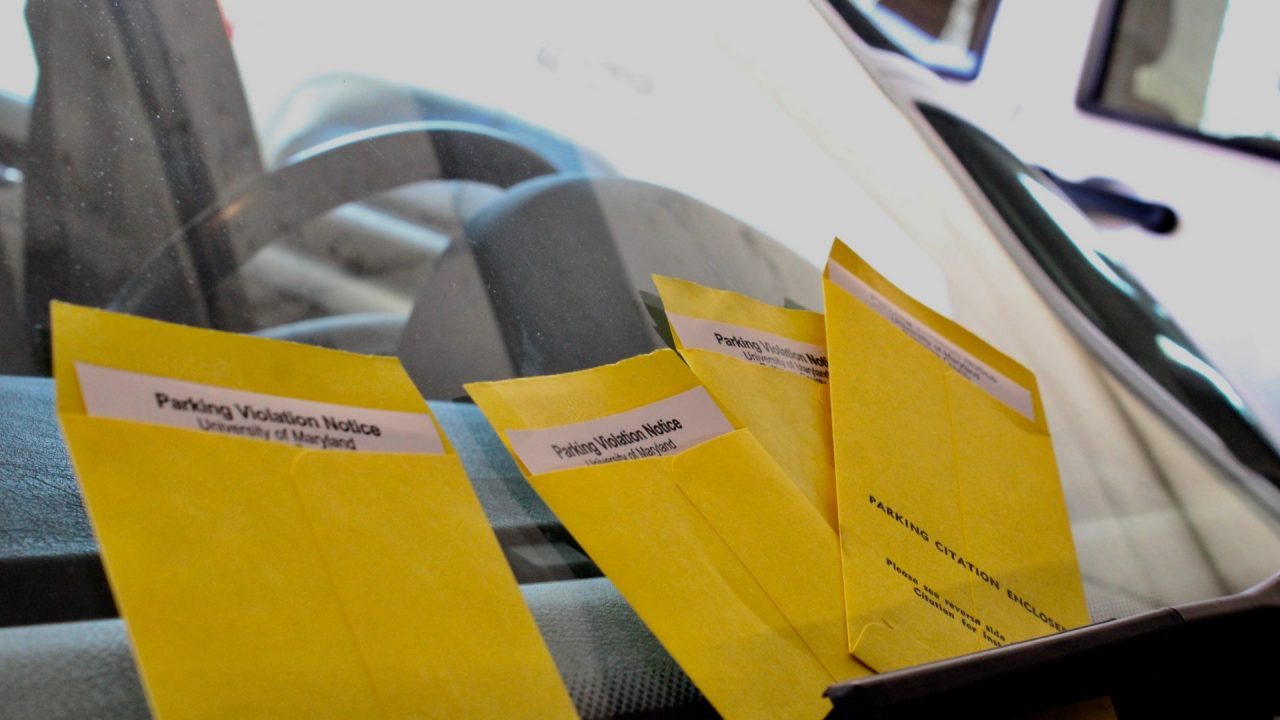UMBC parking is ditching physical hang-tags and transitioning over to digital parking passes this upcoming fall. With the help of license plate recognition technology, permit holders can easily add and maintain their vehicles in a parking database.
This allows for a streamlined process where students, faculty and staff will be able to request parking permits electronically. Students will no longer have to stand in line at the parking services building nor will they need to pay replacement fees for lost or stolen permits. Under the new system, up to three vehicles can be registered. However, only one of these cars can be authorized to park on campus.
The new system’s integration with local and state police databases will also enhance security. Its technology consists of a camera that can detect, read and store pictures of a car’s license plate. These cameras are often used in parking lots and gated security entrances. The license plate is then compared to license plates stored in a database which can be used to determine a match. According to a press release by the parking department, the system will retain the color coding of the physical hang-tags.
Student opinion on these changes has been mixed. Some students have taken to its convenience and welcome the new system. Senior biology major Lisa Nguyen says, “I would say this new technology is going to be much more effective compared to the tags. Honestly, a lot of students forget to bring their tags to school. Of course, that causes issues for students to even be able to park without paying.”
Others are less optimistic about the change. Junior computer engineering student Bryan Patterson says, “To be honest, I’m skeptical. There are some obvious benefits … however, if I were to pinpoint a specific problem with parking on campus, it would be that there aren’t enough ‘A’ permit spaces.”
He also brought up a critique of the one-car policy, saying, “This system seems great, but I wonder if limiting each person to one car on campus will actually help the parking in any meaningful way, as the vast majority of people already just use one car, I imagine.”
UMBC parking service staff member Chuck Boddy described the benefits of the new system. He says, “Let’s say an incident happens in stadium lot; you don’t have any witnesses. With the new system, we’ll know who was parked in that lot and we’ll know who to reach [out] to.”
Privacy concerns were also addressed. According to Boddy, “all the information collected is very confidential and is not shared with anyone else on campus unless the police were to need that information.” He went on to highlight the benefits of its integration into local police databases, saying, “Let’s say there was an Amber Alert or a stolen vehicle on campus. It will send a flag to our operator letting our operator know that this vehicle was flagged stolen or for an Amber Alert. We can contact our police department and let them handle that.”
One aspect that could make finding a space easier is the upcoming app that lets students know which spaces are available. This app, previously unmentioned in press releases, will be rolled out along with the new virtual permit system. Boddy says, “These cameras, as they travel through the lot, can also maintain occupancy data as well. You’ll have a UMBC brand that you can get the occupancy data from.”

